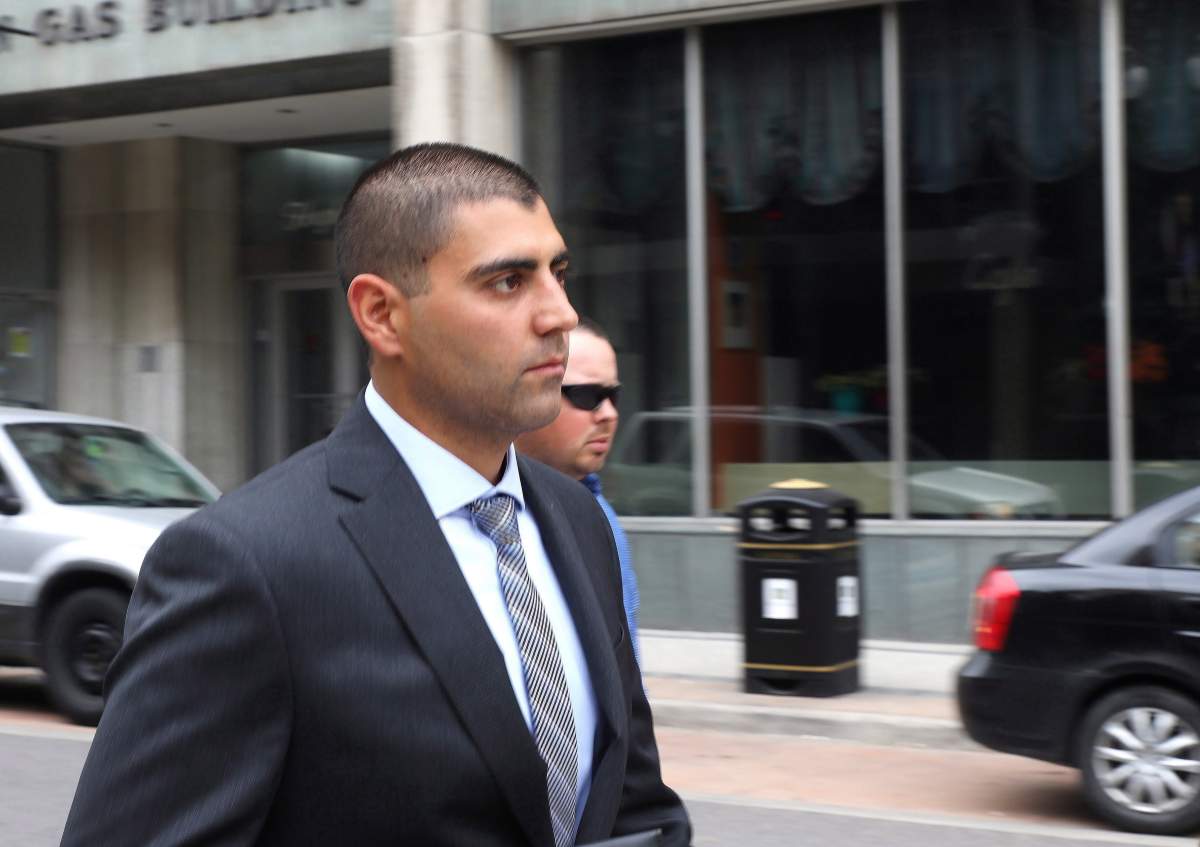Closing arguments are finished in the trial of the Binbrook man charged with fatally shooting a Six Nations man on his property in February 2016.

Peter Khill pleaded not guilty to second-degree murder, saying he thought Jonathan Styres was armed with a gun when he shot him in his driveway at about 3 a.m. on February 4, 2016.
Styres was allegedly trying to steal Khill’s pick-up truck and died as a result of two shotgun blasts — one to his chest and another to his right shoulder.
Over the past two and a half weeks, the jury, which started with 14 jurors and is now down to 12, heard from a number of witnesses and experts, including the police officers who arrived on the scene that night, a ballistics expert, and a forensic psychiatrist.
During his closing submissions, Khill’s defense attorney, Jeffrey Manishen, argued that he fired in self-defence and genuinely feared for his life and the life of his then-girlfriend, now-wife.
“This was a case of self-defence,” said Manishen. “It’s a belief that he honestly held, it’s an action that he took out of a concern for his own well-being. It was a terrifying, imminent threat that he preceded.”

Get daily National news
Manishen referenced testimony from an expert who said Khill’s military training and background likely impacted his response.
He also pointed out that Khill tried to perform CPR on Styres after shooting him.
“When he acted the way he did outside — with respect to the use of the firearm in the tragic fashion he did — he did so to save his own life. Immediately thereafter, his conduct was to try and save the life of Mr. Styres.”
Crown attorney Peter McDermott’s closing argument focused on reminding the jury to consider all of the evidence as a whole, and how all of the steps Khill took that night were deliberate and resulted in the fatal shooting.
He acknowledged that Styres shouldn’t have been trying to steal Khill’s truck but said that didn’t justify him being shot and killed.
“What happened here is what Peter Khill decided was going to happen,” he told the jury. “It had nothing to do with self-defence.”
“If you come at someone within twelve feet, or four or five, with a loaded shotgun … and you load it with two shells and you shoot both of them at close range at a human being, that’s second-degree murder. That is an intentional killing.”
McDermott said Khill had the opportunity to call 911 but actively chose to confront Styres outside while armed.
He also argued that being trained as a soldier doesn’t give Khill any additional justification for fatally shooting Styres and added that the fact that he shot him twice demonstrates that it was more than self-defence.
Judge Andrew Goodman began delivering his charge to the jury on Wednesday and will continue instructing them on Thursday morning.
The not-guilty verdict in Khill’s first trial in 2018 was overturned by an Ontario Court of Appeal due to how that judge instructed the jury.
“The trial judge failed to instruct the jury to consider Mr. Khill’s conduct during the incident leading up to the shooting of Mr. Styres when assessing the reasonableness of that shooting,” Justice David Doherty wrote in a unanimous decision that was upheld by the Supreme Court in 2021.








Comments